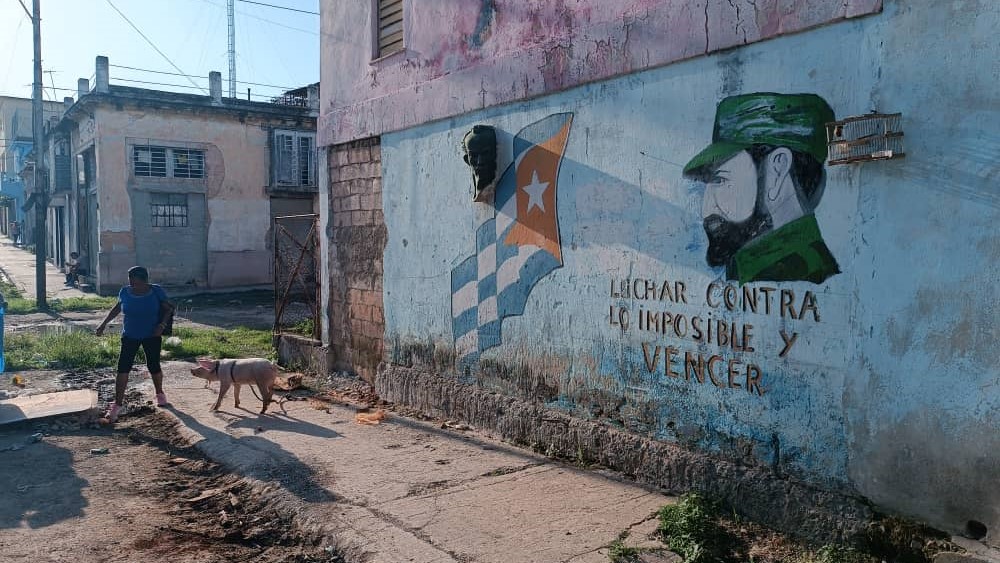The Human Rights Council’s (HRC) Universal Periodic Review (UPR) aims to review the state of human rights in the countries that make up the United Nations (UN). The fourth cycle of the review began in November 2022 and, over a period of four and a half years, will assess each UN member state's record in this area. The 44th meeting of the Council, which will be held from Monday, November 6 to 17, will evaluate 14 countries, including Canada, Colombia, Germany, Russia, Turkmenistan, and Cuba.
This is a process through which each of these countries could improve their human rights records. Some of them will make real efforts to do so. There will be governments that will undergo the review with few prospects for change; others, such as the Cuban regime, will try to portray themselves as defenders of human rights when the reality is that they systematically commit widespread violations of them.
The UPR is based on three documents: the national report on the State under review; the compilation of information by the UN, containing the reports of the treaties' bodies, special procedures, as well as the written submissions of the UN entities' national teams; and, finally, a summary of the written submissions of other stakeholders, containing information from national human rights institutions, civil society organizations, and regional human rights mechanisms.
In every case submissions are to contain credible and reliable information on the human rights situation in the state under review, highlighting key human rights concerns, best practices and recommendations in this regard, and covering the period since the last review; since 2018, in the case of Cuba.
The Cuban regime usually brings to the table endorsements by dozens of organizations that it controls and puts forth as part of civil society, but there are also independent groups in the UPR that expose the official propaganda's lies.
In 2020, Havana underwent a UPR mid-term evaluation. At that time, it had not complied with at least seven of the commitments undertaken with the HRC in 2018, as pointed out at the time by the Regional Alliance for Free Expression and Information and the Cuban Human Rights Observatory (OCDH).
In a report sent to the representatives of states with delegations at the United Nations in Geneva, the groups indicated that the Cuban Government continues to violate the rights of access to information, freedom of expression, association and peaceful assembly, among others.
In the UPR's second cycle (2013) Havana received 292 recommendations and accepted 226 of them. In 2018 it was presented with 339 recommendations and also accepted 226. While the number of recommendations has been rising, the percentage of acceptance by the Cuban State has been dropping. From 79% acceptance of recommendations received in 2013, it dipped to 67% in 2018.
Havana comes to this new review with more deficiencies. There are many recommendations from the previous process that it has failed to comply with, or has directly evaded, several of which are central to human rights. Havana's justification is that some are harmful to its sovereignty. It claims to be complying with others, but not strictly.
A lack of commitment to human rights
Although it has signed some conventions, the Cuban regime then proceeds to comply with them as it deems fit.
Havana has not signed or ratified the Optional Protocol to the Convention against Torture and Other Cruel, Inhuman or Degrading Treatment or Punishment, which prevents investigations into these issues within the prison system and police interrogation centers. Nor has it ratified the International Covenant on Civil and Political Rights, such that it ignores its two optional protocols, which prevents recognition of free political thought, the freedom of parties and the safe exercise of rights of this nature, such as those of expression, assembly and demonstration/protest, legitimizing their criminalization.
The Cuban Government, which profits from the sale of professional services, while the working conditions of the specialists it exports have been condemned by international organizations, including the United Nations itself, has not signed the ILO's 2014 Protocol to the Forced Labor Convention (1930). Hence, Cuba appears alongside China and North Korea as leaders in forced labor practices.
The regime has not ratified the Second Optional Protocol to the International Covenant on Civil and Political Rights, designed to abolish the death penalty. In fact, the number of crimes punished with this sentence has actually increased in the new Cuban Criminal Code relative the prior one. Havana has also refused to endorse the Optional Protocol to the Convention on the Elimination of All Forms of Discrimination against Women, which prevents a thorough investigation of discriminatory acts of all kinds against women for political reasons, affecting fundamental rights such as their access to forms of employment and full inclusion in society. Independent feminist activists suffer persecution in Cuba, and women activists are repressed for trying to get involved in political affairs.
Moreover, Havana has failed to subscribe the Optional Protocol to the Convention on the Rights of the Child on a communications procedure, which prevents the Committee on the Rights of the Child from investigating the mistreatment and criminal repression unleashed against 11-J protesters under 18 years of age, dozens of whom continue to serve severe and arbitrary sentences of incarceration at prisons unsuitable for their age, subsequently being denied any rights to release. The regime also refuses to harmonize its national laws, including criminal justice, with the provisions set down in the Convention on the Rights of the Child and the rest of its protocols.
